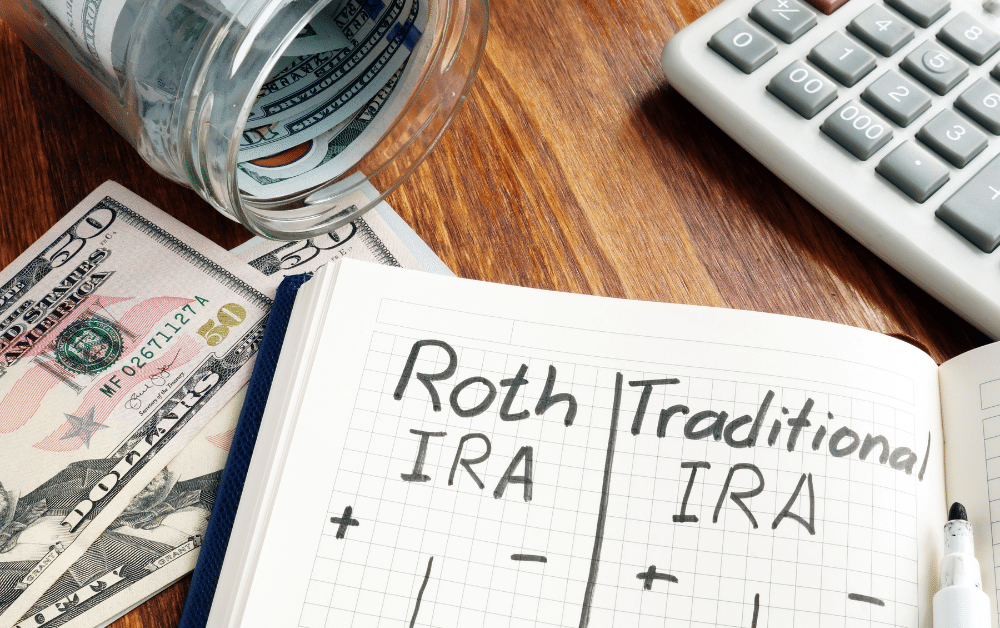Moving Your Retirement Account Overseas: What to Know

- Retirement Planning for Expats
- What Happens to Your Retirement Accounts When You Move Abroad?
- Can You Move Retirement Accounts Overseas?
- What Happens To Your 401(k) When You Move Abroad?
- Common Issues Faced by US Expats Trying to Move Their 401(k) from the US
- Can Expats Contribute To A 401(k)?
- IRAs for US Expats
- Other Considerations for Expat Retirement Accounts
- Expat Retirement Accounts Don't Have to Be Complicated
When an American moves to a foreign country, prudent financial planning should not be left behind in the United States. One aspect of this planning is retirement planning.
This article discusses how American expats should handle their retirement accounts.
Key Takeaways
- When moving abroad permanently, it is generally true that 401(k) and IRA accounts can be maintained and managed from anywhere. However, there may be limitations and restrictions based on the type of account, the destination country, and local retirement account regulations.
- A key concern for American expats with retirement accounts is double taxation – the risk of retirement account income being taxed in both the United States and a foreign country.
- Fortunately, the US tax system offers Tax Treaties, Foreign Earned Income Exclusion and Foreign Tax Credits.
Retirement Planning for Expats
Retirement planning involves implementing financial strategies to be comfortable and secure during retirement. By making proper investment and saving decisions when you are younger, including minimizing your taxes, you can maximize your available financial resources when you are no longer working.
Two common vehicles that are part of retirement planning in the United States are:
- 401(k) – Sponsored by your employer, a 401(k) enables you to put aside a certain amount of your wages for your retirement in a tax-preferred manner; and
- Individual retirement account (IRA) – With an IRA, you save for your retirement in a tax-preferred manner while you are working.
US expats must consider the specific issues with their retirement planning.

What Happens to Your Retirement Accounts When You Move Abroad?
When you move abroad, the fate of your retirement accounts depends on various factors, including the type of retirement account, the country of your residence, and local tax laws. Generally, 401(k) and employer-sponsored retirement plans can be left with your former employer, rolled over into an IRA or another qualified retirement account, or taken as a distribution. IRAs can be maintained remotely and managed abroad, with contributions allowed as long as you have earned income in the United States or meet other eligibility requirements. However, there may be tax implications and reporting requirements to consider.
Foreign retirement plans, such as pension or provident funds, may be available in your country of residence and allow you to contribute as a resident. It’s crucial to understand the rules and regulations in your new country of residence, as they may impact your retirement savings.
Being aware of the options and implications can help you make informed decisions and safeguard your retirement savings as an expat.
Can You Move Retirement Accounts Overseas?
When you move to a foreign country, you may be inclined to want to move everything with you, including your retirement accounts. However, it is not easy to move your retirement accounts overseas.
Difficulty Finding Equivalent Foreign Retirement Account
One problem is finding an equivalent retirement account in your new foreign country. With the exception of specific specially structured corporate pension plans (which are not available to most American expats), there generally is no such thing as a “non-US” 401(k) or IRA equivalent.
No Tax-Free “Rollover” to Foreign Retirement Account
A second problem is the withdrawal of funds from your US retirement account and the transfer of such funds to a “non-US” retirement account, which will be a taxable event in the United States. While US tax law allows certain tax-free “rollover” transfers between US retirement accounts, such tax treatment does not apply to transfers to “non-US” retirement accounts. In addition, if you transfer your retirement account before the age of 59.5 years, you may be subject to a 10% penalty, as well as tax liability.
What Happens To Your 401(k) When You Move Abroad?
When moving abroad permanently, it is generally true that 401(k) and IRA accounts can be maintained and managed from anywhere in the world. However, there may be limitations and restrictions based on the type of account, the destination country, and local retirement account regulations.
Rollover Options for Traditional 401(k) When Leaving a Job
When leaving a job, you have options for your traditional 401(k) account. You can roll it over into an IRA or another qualified retirement account, such as a Roth IRA or another employer’s 401(k) plan. Taking a distribution or leaving it with your former employer are also options, but may not be the most advantageous for managing your retirement savings.
Tax Implications of Transferring Funds to Roth IRA
Transferring funds from a traditional 401(k) or traditional IRA to a Roth IRA is possible, but it is a taxable event and may result in immediate tax liabilities. Transfers like this resulting in tax due now are often done as future distributions from Roth IRAs are typically not taxed. Careful consideration should be given to the potential tax consequences before making such a transfer. Seeking professional tax advice is recommended.
Portability of Roth IRA and Other Investment Accounts
It is generally true that Roth IRAs and other investment accounts, such as brokerage accounts, are portable and can be maintained and managed even if you move abroad. However, there may be implications in terms of tax treatment, reporting requirements, and other regulations in the country you are moving to.
Common Issues Faced by US Expats Trying to Move Their 401(k) from the US
Given that there are still some common problems expats face in moving their retirement accounts overseas, many US expats decide to leave their 401(k) in the United States. Some possible situations are mentioned below:
US Retirement Plan Administrators May Be Unwilling to Work with American Expats
First, some US retirement plan administrators are unwilling to work with a person who no longer lives in the United States. In some cases, they may freeze the 401(k) (in terms of not accepting new contributions to the 401(k)), and in other cases, they may even close the 401(k). Thus, you must retain a US retirement plan administrator who can work with US expats.
Currency Risk
Second, the 401(k) is likely held in the currency of the United States (the dollar), but the American expat will ultimately spend the funds in the 401(k) account in the foreign country of residence’s different currency. This creates currency risk if the US dollar declines in purchasing power relative to the currency of the applicable foreign country, resulting in a decline in the valuation of the 401(k).
Foreign Taxation of Funds in 401(k) Account
Third, while the 401(k) account is subject to favorable tax treatment in the United States, such may not be the case in the foreign country of residence. Thus, it is possible that the US expat is subject to taxation on the funds in the 401(k) account in the foreign country.
Can Expats Contribute To A 401(k)?
In general, no. In order to contribute to a 401(k) plan, the expat must be working for a company that offers a 401(k) plan while the expat is overseas, and the expat usually must be on a temporary foreign assignment with the expectation of returning to the US within a few years. It is possible for any foreign company to offer a US-based 401(k) plan, but they must follow all of the strict eligibility rules that apply to 401(k) plans. Typically, only foreign companies with many US employees would even consider offering a 401(k)-plan due to all the complicated statutes and regulations that need to be met.
However, depending on their specific circumstances and the tax laws of the country they reside in, expats may have other retirement savings options available, such as contributing to an individual retirement account (IRA), a Roth IRA, or a foreign retirement plan.
Who doesn’t love a tax break? Download our easy-to-use excel calculator to get an estimate of how the foreign earned income exclusion can save you money.

IRAs for US Expats
IRAs for US expats are subject to many of the same issues as 401(k)s, including:
- Some US retirement plan administrators are unwilling to handle an IRA for a person who no longer lives in the United States;
- There is a currency risk that the US dollar may decline in purchasing power relative to the currency of the applicable foreign country, resulting in effect a decline in the valuation of the IRA;
- it is possible that funds in the IRA are subject to taxation in the foreign country; and
- You need taxable earned income that is not subject to the foreign earned income exclusion to support a contribution to an IRA.
One technique to avoid double taxation of income for a US expat is to rely on the foreign earned income exclusion. The foreign-earned income exclusion allows you to exclude certain income earned outside of the US from US taxation. However, any earned income that is excluded from US taxation because of the foreign earned income exclusion cannot be relied on to support a contribution to an IRA account. This income would typically need to be invested in a non-retirement investment account that is taxed annually on all interest, dividends, and capital gains.
Any taxable earned income of an American expat above the foreign earned income exclusion amount (in the 2024 tax year, above $126,500) might be able to be contributed to a tax-favorable retirement account, but numerous limitations and penalties could easily apply.
Other Considerations for Expat Retirement Accounts
A key concern for American expats with retirement accounts is double taxation – the risk of retirement account income being taxed in both the United States (based on the expat being a US citizen) and a foreign country (based on the expat residing in or deriving “foreign-source” income from such foreign country). Taxes are a significant burden in one country, let alone paying taxes on the same income in two countries.
Fortunately, the US tax system offers the American expat three possible provisions to reduce this risk of double taxation:
- Tax Treaties– The US has agreed to tax treaties with many foreign countries. These tax treaties can determine whether the US or the applicable foreign country (and most importantly, not both jurisdictions) can tax the retirement account income.
- Foreign Earned Income Exclusion– The exclusion allows you to exclude from US taxation certain income earned outside of the US. If applicable, the foreign-earned income exclusion can subject retirement account income to a single level of taxation in the foreign country and not in the United States.
- Foreign Tax Credit– The foreign tax credit affords a dollar-for-dollar credit against US tax liabilities for certain taxes you paid to a foreign government. With the foreign tax credit, you can address the double taxation problem by, in effect, “netting” the foreign tax liability against US tax liabilities.
Expat Retirement Accounts Don’t Have to Be Complicated
At Greenback Expat Tax Services, we specialize in helping expats manage their US tax obligations. As part of this work, we have years of experience in helping expats with expat retirement planning.
If you’re ready to be matched with a Greenback accountant, click the get started button below. For general questions on expat taxes or working with Greenback, contact our Customer Champions.




